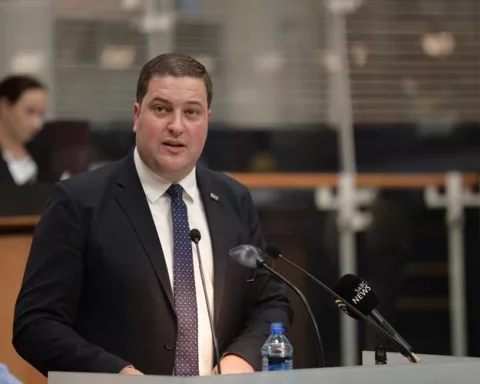The largest amount ever given to a South African municipality has been granted by the International Finance Corporation (IFC) to Cape Town – R2.8 billion in infrastructure funding. This funding will be used to modernize the city’s water, sanitation, transport, and electricity systems and create 130,000 construction-related jobs. Cape Town plans to allocate R39.5 billion to infrastructure modernization by June 2027 and has secured funding from a diverse financing model that includes local and international funds. This move toward modernization is a symbol of Cape Town’s progressiveness, resilience, and inclusivity.
Historic infrastructural funding of R2.8 billion has been granted to the City of Cape Town by the International Finance Corporation (IFC). With a plan to allocate R39.5 billion to infrastructural modernization until June 2027, the city will revamp its water and sanitation, transport, and electricity frameworks, creating an estimated 130,000 construction-related jobs. The loan’s 18-year term substantiates the city’s prudent financial stewardship, and a diverse financing model includes funds from local and international markets. Cape Town’s infrastructural makeover is a symbol of a progressive, resilient, and inclusive city, ready to lead with sustainability.
International Finance Corporation’s Generous Funding
In a momentous event indicative of a bold stride toward infrastructural development, the International Finance Corporation (IFC) has bestowed a staggering R2.8 billion in infrastructure funding on the City of Cape Town. This substantial financial collaboration denotes a significant juncture in the city’s path of expansion, as Cape Town commences an extensive infrastructural investment venture spanning over ten years.
Set to soon become South Africa’s most densely populated city due to its rapidly growing populace, Cape Town has detailed ambitious strategies for utilizing this substantial IFC funding. With a bold plan to allocate R39.5 billion to infrastructural modernization until June 2027, Cape Town is undeniably prepping for a comprehensive revamp. Mayor Geordin Hill-Lewis expresses the essence of this initiative succinctly, stating, “We are laying the groundwork for this by heavily investing in our fastest-growing and poorest areas.” He stressed upgrades to crucial water and sanitation, transport, and electricity frameworks.
Long-term Vision and Job Creation
This thrilling progression is not merely about physical structures and utilities. It’s about revival, empowerment, and a city actively investing in its future while supporting its most disadvantaged citizens. It’s about the creation of an estimated 130,000 construction-related jobs in the upcoming three years. It’s also about fostering a city that is environmentally aware, with the majority of projects aligning with the City’s comprehensive Climate Change Strategy.
The funding agreement with the IFC has been crafted with a long-range perspective. The loan’s 18-year term indicates a commitment to making responsible investments in assets with extended operational lives, substantiating the city’s prudent financial stewardship.
In expressing her pleasure over the partnership, IFC’s Southern Africa Regional Director, Cláudia Conceição, said, “We are thrilled to announce our alliance with the City of Cape Town in elevating the standards of water and sanitation services, wastewater treatment, roads infrastructure, and power supply to enhance the city’s resilience.”
Diverse Financing Model and Future Plans
The finance journey began in October 2023 when Cape Town invited funding proposals for the fiscal years 2023/24 and 2024/25. Negotiations with local and foreign lenders led to the IFC’s financial approval in June. The city also secured R3.5 billion in financing from Nedbank, and the previous April, it ratified €100 million in development financing from the Agence Francaise de Developpement.
These transactions demonstrate that the City employs a diverse financing model that includes funds from its balance sheet and local and international markets. The fiscal year 2024/25 will witness further funding agreements presented to the council to fully meet the remaining financial needs of the City’s ambitious infrastructure scheme.
A Forward-looking City Ready to Lead and Embrace the Future
Cape Town’s infrastructural makeover is more than a simple tale of construction. It’s the chronicle of a city that’s progressive, resilient, and inclusive. A city not just preparing to become South Africa’s most populated city, but also one that’s geared up to set a benchmark for others, both regionally and globally. The infrastructural journey of the City of Cape Town underscores a resounding message: it’s prepared to welcome the future, and it’s ready to lead with resilience, inclusivity, and sustainability.
1. What is the amount of infrastructure funding granted to Cape Town by the International Finance Corporation (IFC)?
The IFC has granted Cape Town R2.8 billion in infrastructure funding, which is the largest amount ever given to a South African municipality.
2. What will the funding be used for?
The funding will be used to modernize Cape Town’s water, sanitation, transport, and electricity systems, and create an estimated 130,000 construction-related jobs.
3. What is the city’s plan for infrastructure modernization by June 2027?
Cape Town plans to allocate R39.5 billion to infrastructure modernization by June 2027.
4. What is the loan’s term and what does it indicate?
The loan’s term is 18 years, indicating a commitment to making responsible investments in assets with extended operational lives, substantiating the city’s prudent financial stewardship.
5. What is the diverse financing model employed by the City of Cape Town?
The City of Cape Town employs a diverse financing model that includes funds from its balance sheet, local and international markets, and financing from Nedbank and the Agence Francaise de Developpement.
6. What does Cape Town’s infrastructural makeover signify?
Cape Town’s infrastructural makeover signifies a progressive, resilient, and inclusive city that is prepared to welcome the future and lead with resilience, inclusivity, and sustainability.












